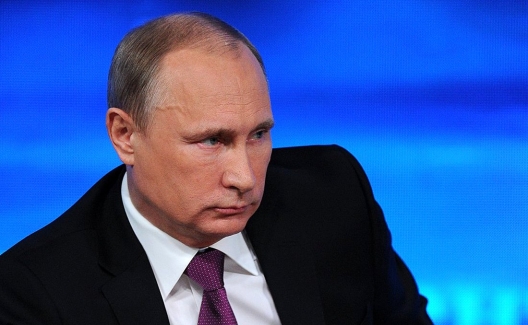 Driven by different external threats, Europe is breaking in two strategically speaking. A weak strategic culture in the center adds to the centripetal trend by impeding clear visions of what is at stake with Putin’s Russia. As Russia’s strategic aim is to undermine European unity, Russia will attempt to undermine common European decision-making from within.
Driven by different external threats, Europe is breaking in two strategically speaking. A weak strategic culture in the center adds to the centripetal trend by impeding clear visions of what is at stake with Putin’s Russia. As Russia’s strategic aim is to undermine European unity, Russia will attempt to undermine common European decision-making from within.
Two major threats confront Europe today. On Europe’s northern and eastern frontiers Russia makes nearby countries refocus their strategic attention on conventional and hybrid military responses, such as increasing NATO reassurance measures in the Baltic Sea region. In the south, the aftershocks of the Arab spring; violent Islamic extremism from Syria and Iraq to Nigeria; and a disaffected youth bulge form a perfect wave to overwhelm ineffective states and economies. In security terms, controlling migration, countering radicalization of diaspora, and the fight against international as well as home-grown terrorism are unavoidable items on the agenda.
All European states nominally recognize both of these threats. But actual strategic attention is a scarce resource. Mediterranean nations like Italy and Spain feel they are bearing the brunt of the effort to tackle illegal migration and its human and economic costs. France, unfortunately, is drifting in their direction, spurred by the challenges of integrating a large number of suburban youth that increasingly perceive themselves as non-French and non-European. France also wrestles with the problems of home-grown terrorism and its proximity to the conflicts involving Islamic radicals in North Africa and the Middle East. In reality, the southern European countries do not acknowledge the fundamental character of Putin’s challenge to Europe (neither do some eastern European governments, e.g. such as Hungary and the Czech Republic, but they are already seen by some as lost pawns in a great game for European unity). Best case, a scarcity of attention will lead to a division of labor with different geographical foci.
Institutions and ideology in the European Union make this growing European schism particularly dangerous. Institutionally, the absence of a European equivalent to the federal American government means that European unity is dependent upon both a sense of purpose in Brussels as well as support from European capitals and Washington, D.C. But over the last decade Brussels has run out of steam. Political relations in Europe have become increasingly ‘rebilateralized’. Solutions are mostly sought among able, willing and relevant nations, rather than in a multilateral forum like the EU. This institutional weakening means that Russia can more easily pick off countries on the eastern flank, as in the case of Hungary, Slovakia and perhaps Greece.
An even more fundamental flaw in the European project makes the institutional dimension worse. Built as a response to the wars Europe brought on itself, the European Union world-view is distinctively bureaucratic. During the enlargement process of the two decades preceding the current crisis, the allure of the EU legal system served as a powerful magnet, at the same time drawing new – small and medium sized – nations closer and reordering them inside-out. But applied to Russia the same logic was always a failure.
The EU pretends that legalese can supplant geopolitics. Russia, however, sees a sphere of interest around its borders. As Putin has proved, geopolitics never went away, in spite of the EU’s best hopes.
The EU bureaucratic world-view, unfortunately, is contagious and spills over into European capitals where if affects scarce strategic attention. Europe has a critical strategic blind spot, formed by the idea that there is no such thing as power politics, that strategic issues can be reduced to administrative security policy, and that dialogue and the magic attractiveness of the acquis communautaire are sufficient tools of foreign policy. This ideology makes it very hard for the EU and many European political leaders to acknowledge and address the hard geopolitics behind Russia’s actions in Ukraine.
In the north, Russia may inadvertently have increased a sense of shared fate among the Nordic and Baltic countries, as well as Poland and Great Britain. Even so, the southern European strategic focus, the centripetal institutional trends, and the bureaucratic wishful thinking in Brussels all contribute to break Europe in two. Unfortunately, a divided Europe is both a means and an end in itself for Putin’s Russia.
Dr. Henrik Breitenbauch is a Senior Nonresident Fellow at the Atlantic Council in Washington, D.C. and a Senior Researcher at the Centre for Military Studies, University of Copenhagen.
Image: Russian President Vladimir Putin, Dec. 18, 2014 (photo: Office of the President of Russia)
